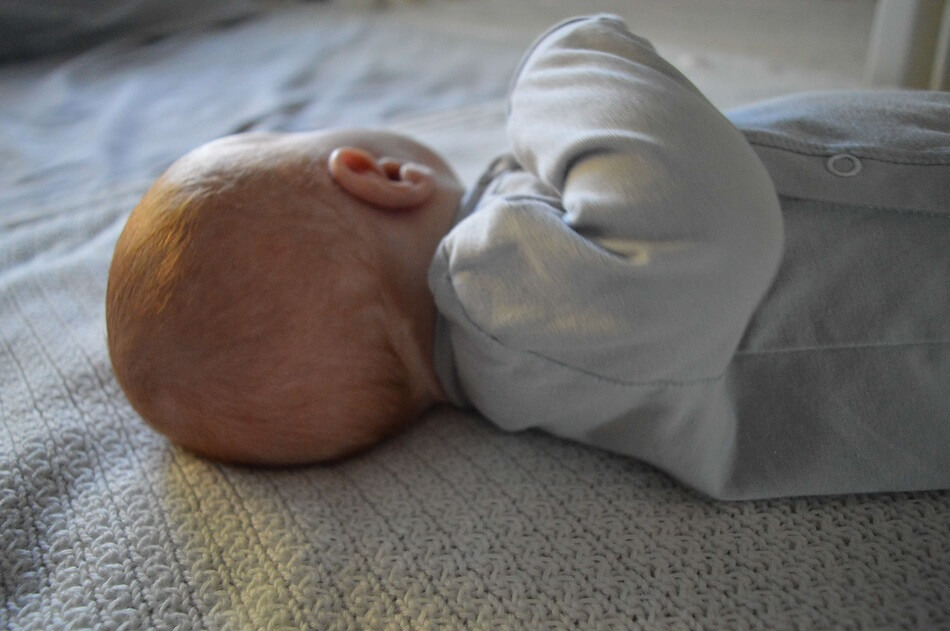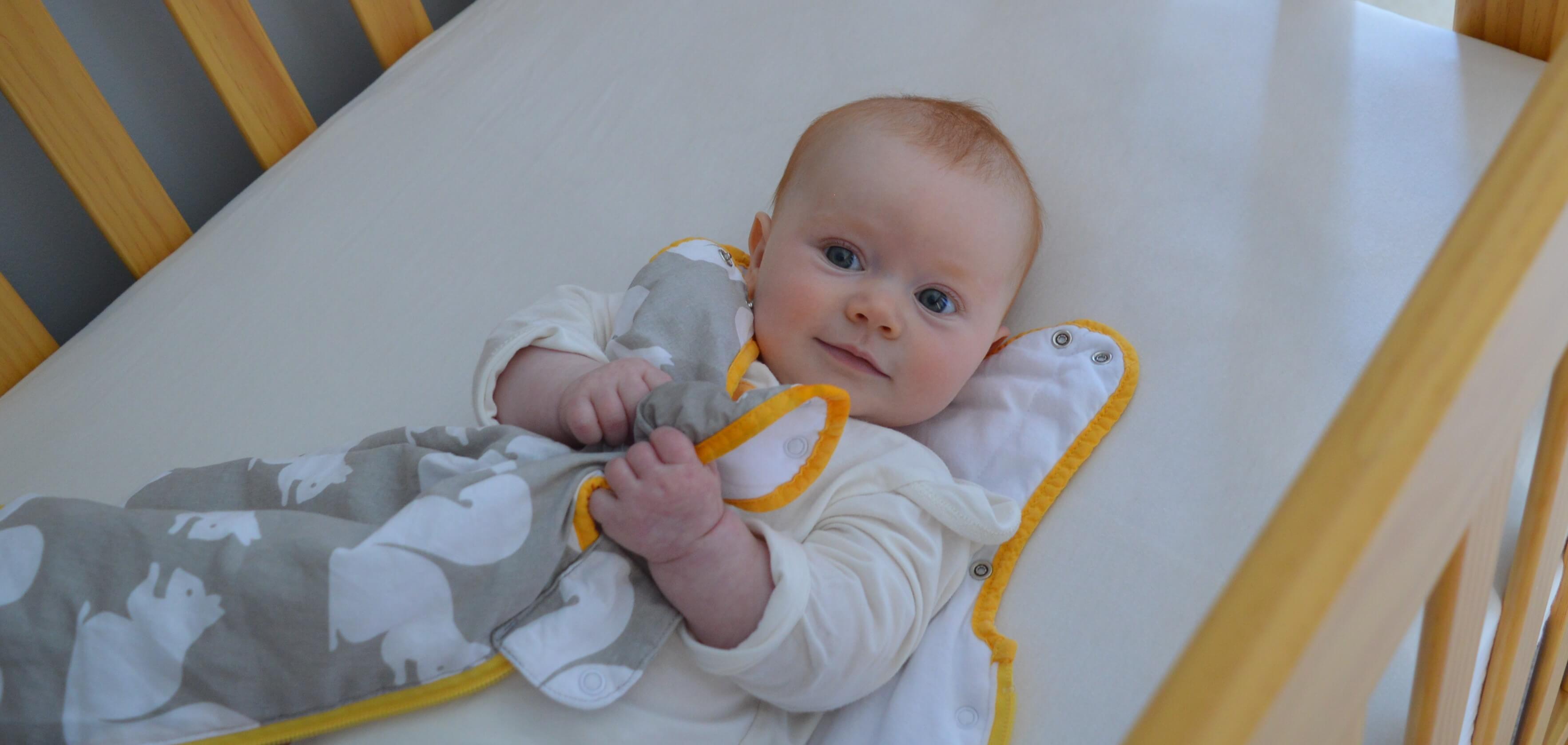Baby Ecology book is here! Learn more
Baby Ecology book is here!
- Home
- Help baby sleep
- Baby sleep cycles
- Why do babies fight sleep?
Why do babies fight sleep?
by Anya Dunham, PhD
Why do babies fight sleep? Actually, they don't, but they appear to be, as they work on developing sleep rhythms and connecting sleep cycles to begin sleeping soundly when they are ready.
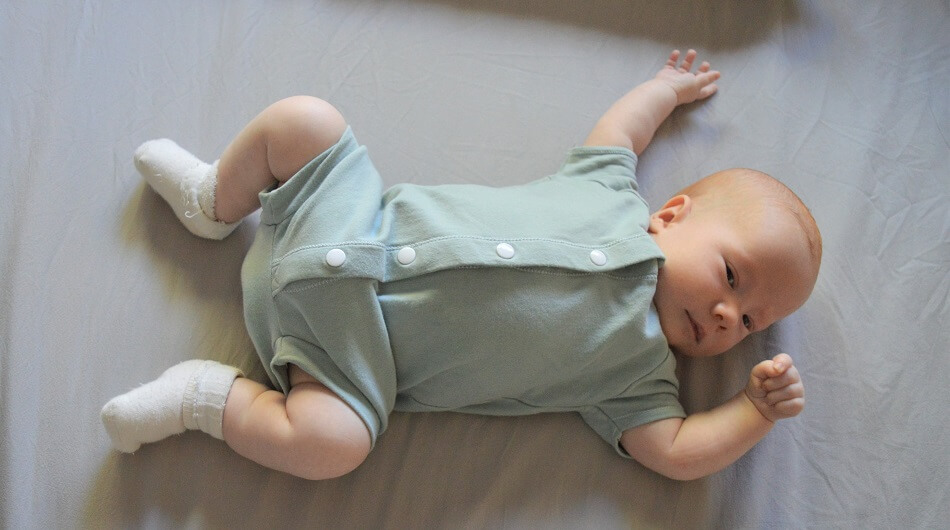
Have you ever paced the room with your baby in your arms, thinking “Why is she trying so hard to stay awake when we are both exhausted? She needs sleep, it’s good for her… Why do babies fight sleep?”.
However, science suggests that babies don’t actually fight sleep (even though it might seem like it).
Why do babies fight sleep? (Or, rather, appear to be)
Here are 3 reasons your baby appears to be fighting sleep, along with 3 things you can do about it:
1. Your young baby is trying to fall asleep, but struggles because of immature sleep rhythms
Most babies come into the world falling asleep easily. Newborns have high levels of melatonin they received from mom before birth. This melatonin keeps them extra sleepy most of the day and night.
After that first sleepy week, the borrowed melatonin dissipates and “day-night confusion” often sets in: baby begins sleeping in short stretches around the clock or sleeps more during the day than at night. His circadian rhythm has not yet developed, so he goes to sleep when he’s tired but wakes up as soon as his drive to sleep diminishes, taking naps at all hours.
Between 6 and 12 weeks he will begin to make melatonin himself, but the levels will still be low.1 His developing sleep rhythms may not be in sync with each other: waking and sleeping states may overlap, be incomplete, or switch rapidly. Wakeful but tired, baby may cry a lot. Some researchers believe that immature sleep rhythms and the resulting tiredness are one of the major reasons for the inconsolable crying we know as colic.2
What you can do: If your baby is young, try a re-frame: instead of “Why is my baby giving me a hard time? Why won’t she sleep and let me sleep?”, try “My little person is having a hard time. She is trying to sleep, and that’s not easy for her”. This reframe might not put your baby to sleep, but there is a very good chance it will help you feel stronger and more connected to your baby during a long night or a no-good-nap day.
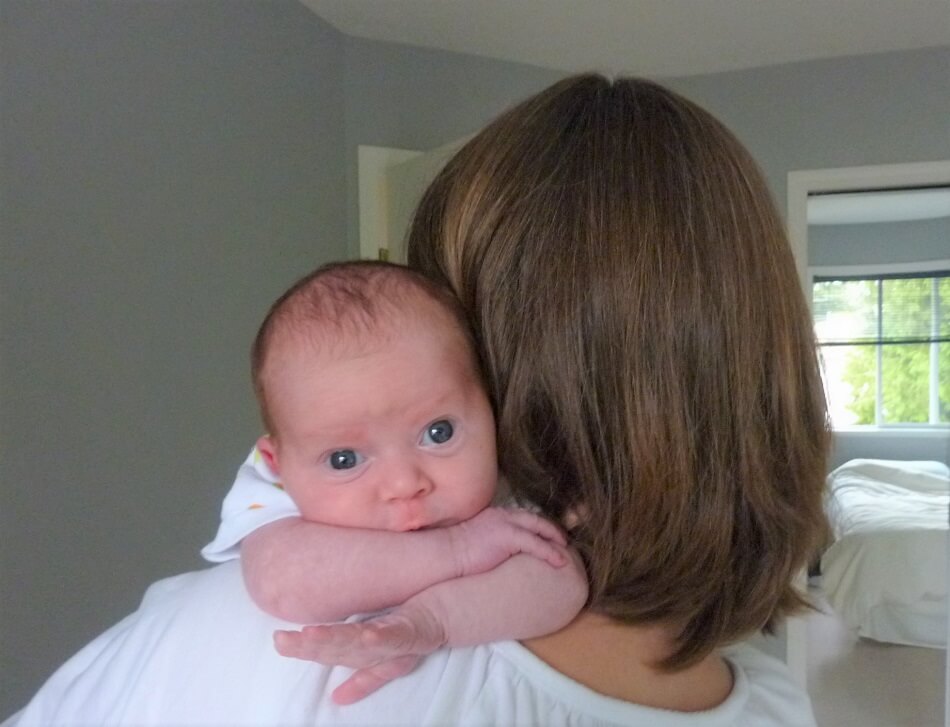
2. Your older baby isn’t yet connecting her sleep cycles smoothly
You probably know that all of us tend to wake briefly between sleep cycles and become more aware of our environment. If all seems well, we turn over, peacefully return to sleep, and most likely don’t recall this brief waking when we get up for the day. In other words, we connect our sleep cycles smoothly.
Babies wake briefly between sleep cycles as well, but they may or may not go right back to sleep. So, night wakings themselves are not a problem and are completely natural. Most restless nights are due to difficulties getting back to sleep, or re-settling, after waking.
Did you know that many babies are capable of re-settling to sleep on their own when they are very young? In one study, 1-month-olds re-initiated sleep on their own in one out of every three night wakings.3
But when scientists followed babies through their first year, 57% gradually began sleeping better by re-settling on their own more, but 43% re-settled on their own less over time.3 Why did some babies develop this ability further while others seemed to have forgotten it?
Because we are shaping our babies’ sleep no matter what we do.
Whether you actively soothe your baby to sleep or your baby goes to sleep on his own, he learns to recognize it as a pattern. Swaddling, rocking, nursing, pacifier, bottle, swing, car seat, Daddy’s arms… through these experiences our babies learn how to go to sleep and return to sleep.
Babies wake when they are hungry, wet, unwell, or need our attention – in other words, when they have a need greater than their need to sleep. They don’t wake up because they want to bounce on an exercise ball, swing in their swing, or go for a car ride - those are simply things we do that they come to recognize as a pattern.
They want to go back to sleep.
And that’s why they are crying or fussing – not because they are fighting sleep.
None of the sleep associations are inherently 'bad'. If it works for you and your baby, great! It's when we create sleep associations that aren't sustainable for us and not necessary for our babies, no one sleeps well.
And it looks like babies are fighting us.
What you can do: Help your baby create sleep associations that are consistent (for him) and sustainable (for you) – so your baby can connect sleep cycles smoothly. Sustainable associations are things you are able to set up – or do and enjoy – every night to help your baby return to sleep. They aren’t the same for every family. Here are some examples:
- A 5-month-old is bed-sharing safely with mom; he breastfeeds briefly during sleep cycle transitions (in addition to several larger feeds) which works for both mom and baby
- A 7-month-old sleeps in a crib by her parents’ bed; when she wakes, her dad helps her find and re-insert her pacifier
- An 11-month-old goes to bed awake and plays quietly in his crib before falling asleep; during sleep cycle transitions he is comforted by the familiar feel of his room environment
These are just examples; follow safe sleep recommendations and decide what works best for your family.
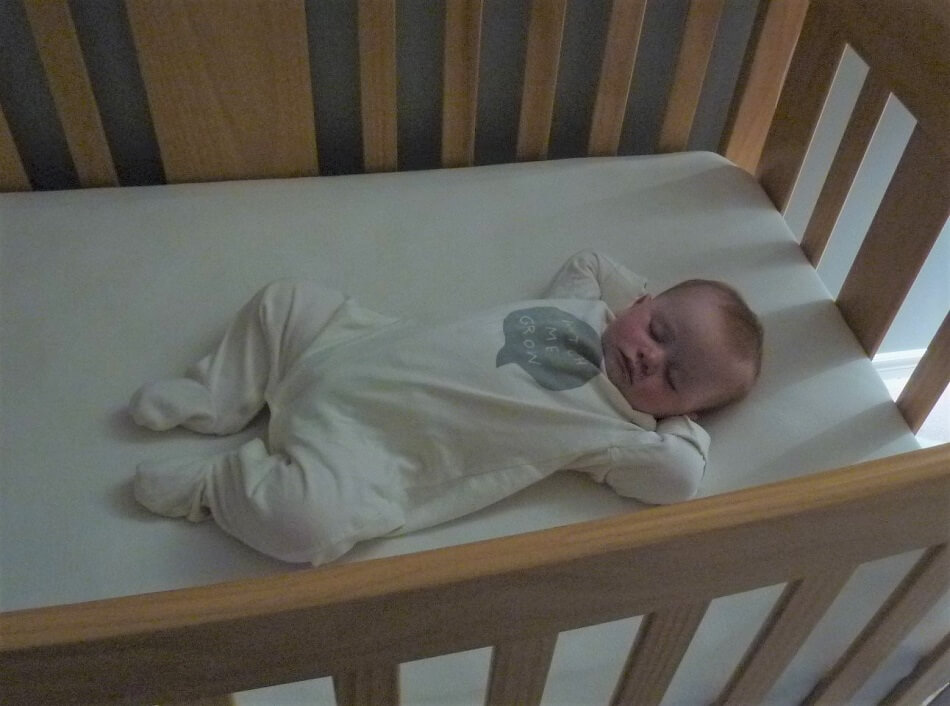
3. Your older baby is able to smoothly connect sleep cycles, but is now waking more or takes a while to fall asleep
Many older babies who have been sleeping well begin waking more at night or taking longer to fall asleep at bedtime around 8 or 9 months old. What is happening?
(It’s unlikely to be teething - see #6 on this list of cool baby facts)
So why do babies appear to fight sleep at around 8 or 9 months old?
First, they are working hard and once again may need extra time to wind down. They are going through many developmental leaps: learning to crawl, stand and perhaps even walk; trying a variety of foods; rapidly expanding their repertoire of sounds.
Second, they are beginning to understand complex sequences and not only see that certain events tend to follow one another, but also realize that they can make things happen (for example, they can put one block on top of another — or call Mommy and make her appear!). If your baby sleeps separately from you and is used to drifting off to sleep calmly on his own, he may now protest when you leave the room.
Finally, most 8-month-olds have moved to napping twice a day. If they’ve been going to bed a bit too late or napping on the go, overtiredness may be catching up to them.
What you can do: To help your baby navigate this phase, put extra effort into keeping him well-rested. Continue offering naps in his usual sleeping space and minimize mini-snoozes in the car or stroller.
Continue providing the comfort of familiar routines. At this age, the routines are still important for keeping your baby well-rested, but are also becoming extra helpful in guiding him toward understanding “this is how we sleep in our family”:
- If you bed-share and it now takes a while for your baby to wind down at night, begin your routine a little earlier to keep the early bedtime.
- If your baby sleeps solo and usually self-settles, but now protests as you leave, talk to him. Acknowledge his feelings (“I see you would like me to stay”), tell him what you are going to do and let him know you will be near (“It’s time for you to rest. I’m going to tidy up the kitchen and go to bed myself. I will be nearby if you need me”). Then leave, and come back if he calls to reassure and comfort him if he cries. You may need to go in several times, so start bedtime earlier if you can. Remember, this shift is happening because of your baby’s new level of understanding of his environment. Similar to his new level of mobility, this is progress, a step forward.
- If your baby sleeps solo and you stay with him as he falls asleep, he may now be taking much longer to wind down. Is he acting as if he’d rather play than sleep? Tell him it’s time to rest and continue with your usual routine; don’t turn on the lights or take him out of his sleeping space. Remain consistent; he may go back to drifting off to sleep in your presence within a couple of weeks. If that doesn’t happen, it’s possible that your presence now feels more exciting than calming to him. Consider shifting toward having your baby self-settle for sleep. Explain the changes to your baby, go slow, and be consistent.
I bring together the science of baby sleep and offer a stage-by-stage guide in my book, Baby Ecology.

Others have asked...
Why does my 4-month-old baby fight sleep? She slept through the night just a couple of weeks ago.
Why does my 4-month-old baby fight sleep? She slept through the night just a couple of weeks ago.
Your baby is likely going through the 4-month sleep 'regression', which is actually a progression, a step forward. Read more about this process and how to support your baby here.
I've been trying to get my baby to nap all day, but nothing is working. He really does seem to be fighting it.
I've been trying to get my baby to nap all day, but nothing is working. He really does seem to be fighting it.
I know how you feel! On no-nap days, you might want to take your baby out for a walk in a baby carrier or stroller. Hopefully, your baby will fall asleep at least for a little bit, but if not, you will both get a change of scenery and fresh air.
References
1. McGraw K et al (1999)The development of circadian rhythms in a human infant. Sleep 22(3): 303-310
2. White BP et al (2000) Behavioral and physiological responsivity, sleep, and patterns of daily cortisol production in infants with and without colic. Child Development 71(4): 862-877
3. Burnham MM et al (2002) Nighttime sleep-wake patterns and self-soothing from birth to one year of age: a longitudinal intervention study. Journal of Child Psychology and Psychiatry 43(6): 713-725
Using hundreds of scientific studies, Baby Ecology connects the dots to help you create the best environment for sleep, feeding, care, and play for your baby.
Warmly,
Anya
